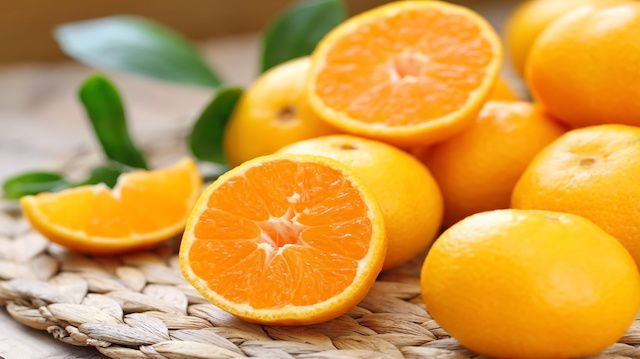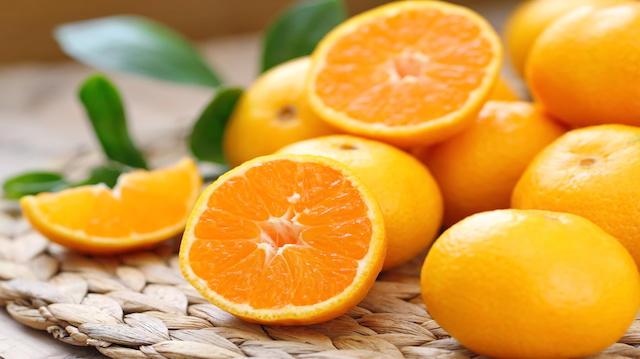
Think you know all there is to know about vitamin C? It’s the most popular vitamin and attributed with benefiting your body in multiple ways. Still, there is more to learn about this common vitamin. You may be surprised to learn the truth about some of these common vitamin C myths!
Vitamin C is the original “superfood.” Before the health community even realized that vitamins were important, we knew vitamin C was healthy. Vitamin C supplements have been around for decades, oranges are famous for their vitamin C content and even candy has added vitamin C.
Although vitamin C is ubiquitous and you probably know a lot about it, you may not know these important vitamin C facts:
Vitamin C does more than boost the immune system
Your parents probably told you to eat vitamin C growing up because it boosts the immune system and can fight off colds. While this is true, it is not the only role for the vitamin. A study from the University of Colorado at Boulder in 2015 found that in individuals who led a sedentary lifestyle, getting enough vitamin C had a protective effect on blood vessels, benefiting heart health. The researchers found that 500 mg of vitamin C daily was enough to provide as much protective effects on the heart as a daily walking workout.
Oranges aren’t the highest in vitamin C
Oranges have become synonymous with vitamin C. However, they are surprisingly not the best source of vitamin C among plant foods. Bell peppers actually contain a much higher dose of vitamin C. A red bell pepper can contain up to 300 mg of vitamin C, which is four times the dose found in an orange. You can also find high doses of vitamin C in kiwi, strawberries, broccoli, brussels sprouts, pineapple and cantaloupe. The other citrus fruits also contain high levels of vitamin C.
Large doses of vitamin C might not stop a cold
Your parents probably shoved vitamin C tablets down your throat when you complained about feeling sick as a child. Most people believe that massive doses of vitamin C can fight off all minor viral infections. Although intense vitamin C treatments are used successfully as part of cancer recovery plans, we don’t have evidence that those tablets help fight your cold. One study found that male athletes who consumed vitamin C supplements regularly reduced their risk of developing a cold by 50 percent, but the benefits were not see in women. If you don’t eat a balanced diet filled with vitamin C-rich fruits and vegetables every day to keep your immune system strong, that mega-dosing when you start to feel sick may not make a difference. So, the jury is still out on vitamin C as a cold remedy.
Many people don’t get enough vitamin C
 Since vitamin C is added to many foods — everything from orange juice to candy — you would think that we would all have enough. However, artificially-added vitamin C is harder for the body to use than vitamins from plant sources. The USDA recommends that women consume about 75 mg of vitamin C daily, while men eat about 90 mg per day. A single orange contains about 70 mg of vitamin C, so if you eat two oranges or an orange and another vitamin C-rich plant daily, you should not have to worry about vitamin C deficiency.
Since vitamin C is added to many foods — everything from orange juice to candy — you would think that we would all have enough. However, artificially-added vitamin C is harder for the body to use than vitamins from plant sources. The USDA recommends that women consume about 75 mg of vitamin C daily, while men eat about 90 mg per day. A single orange contains about 70 mg of vitamin C, so if you eat two oranges or an orange and another vitamin C-rich plant daily, you should not have to worry about vitamin C deficiency.
Typical signs of a vitamin C deficiency include the following:
- Nosebleeds
- Bleeding gums
- Dry skin
- Swollen joints
- Easy bruising
Vitamin C is essential for the health of the body and it is possible to be deficient in this important vitamin. Eat foods high in vitamin C daily rather than consuming a high dose just when you feel sick. By following these new vitamin C rules, you will be healthier and less likely to get sick from common illnesses.
—Brenda Priddy
Brenda is a writer, chef and health nut with many years of writing experience in the alternative health industry. She specializes in health news, healthy living, alternative treatments, and healthy recipes. She loves educating others about sustainable, healthy living. Brenda lives in Texas with her husband and two daughters.
Sources:
http://www.the-aps.org/mm/hp/Audiences/Public-Press/2015/44.html
http://onlinelibrary.wiley.com/doi/10.1002/14651858.CD000980.pub4/abstract

